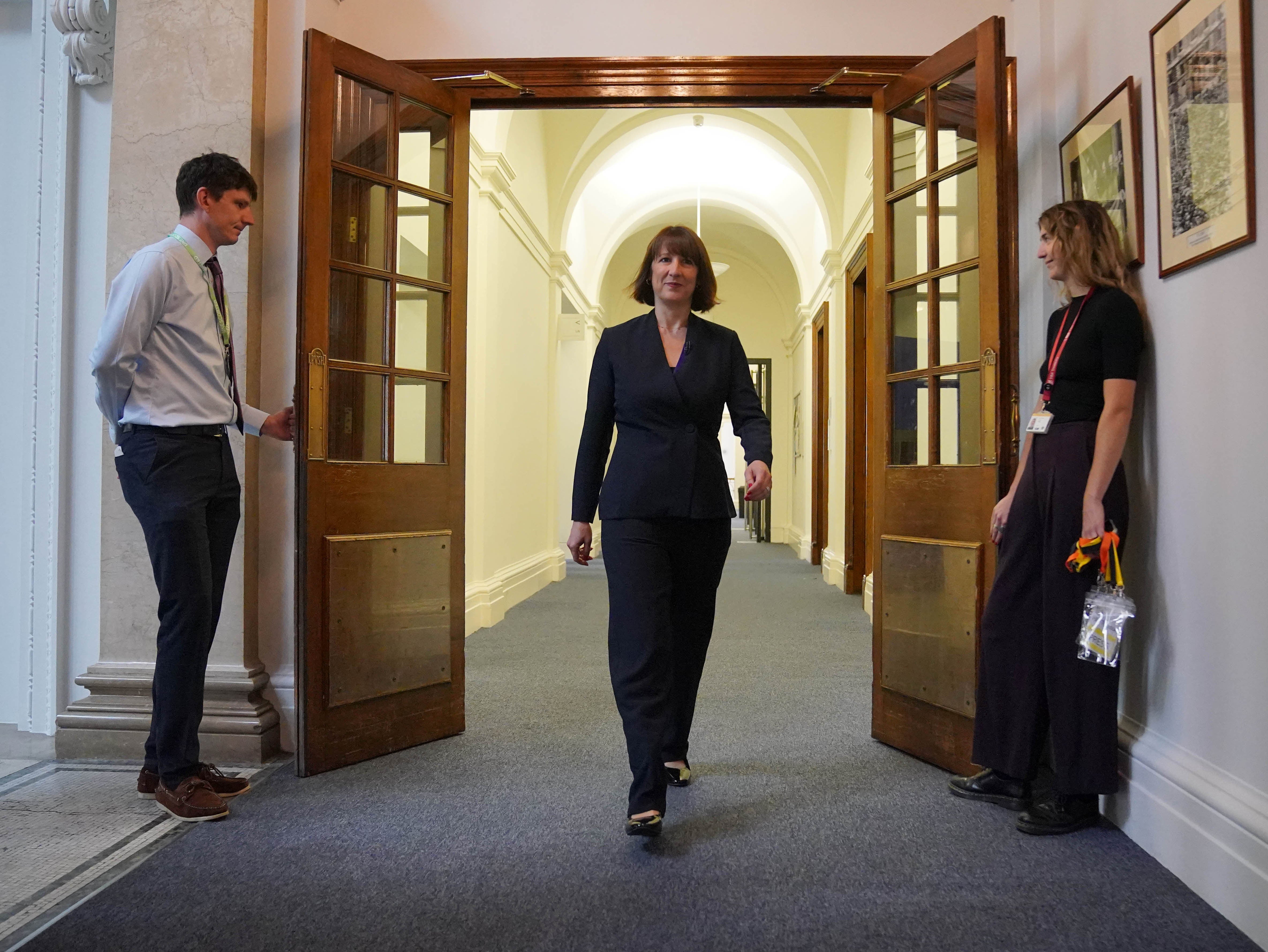‘Difficult decisions’ won’t fix Britain’s finances – we must all brace for higher taxes
Editorial: The state of the country after 14 years of Conservative rule has been laid bare in a series of official audits. The public will accept the need for emergency measures

The chancellor of the Exchequer provided an “update” to the cabinet on Tuesday morning on the Treasury’s audit of “public spending pressures the government has inherited”.
According to the prime minister’s official spokesperson, Rachel Reeves said: “There are significant financial pressures facing departments because of decisions taken by the previous government.” And she added: “Difficult decisions will be needed to fix the foundations of the public finances.”
The cynics and the Conservative Party, led by Jeremy Hunt, her predecessor, accuse her of engaging in a propaganda exercise to soften up the British public for tax rises to come – tax rises for which she insisted she had “no plans” during the election campaign.
They have a point. As The Independent argued before the election, it was obvious that the public finances were unsustainable, and that whichever party formed the next government would have to either put up taxes, cut public spending or increase borrowing.
But Ms Reeves also has a point, which is that the situation is worse than Labour thought. The publication of a series of reports by the National Audit Office a few hours after the cabinet meeting confirmed it.
These reports had been held up during the election period under the rules that prevent the publication of controversial material – but now the truth can be told. The finances of the NHS are in an “unprecedented” state, and staff are “working at the limits” of the system. Local government finances are precarious, with local councils spending half their budgets on homelessness, a problem that has hit a record high.
A third NAO report reveals the full cost of Rishi Sunak’s decision to scrap the second phase of HS2, which was revealed by The Independent last September. That could amount to £100m, and the NAO says it could take three years to shut down sites where work had begun.
The oversight of the NAO – an independent body with responsibility for ensuring that public money is well spent – will lend authority to the Treasury’s review of the state of the public finances. This explicitly political exercise will be published on Monday. It will presumably focus on the horrors that were not made public before the election.
In addition to the findings of the NAO, it will include such things as the recommendations of the public sector pay review bodies for teachers and NHS staff that were sitting on ministers’ desks when the voters went to the polls. Their publication will present the new government with difficult decisions because they are higher than the amounts assumed in the Office for Budget Responsibility’s forecasts.
All of this presents Ms Reeves with hard enough choices, even before she has to consider the additional pressures on the public finances that Labour could see coming. She and Keir Starmer have half-conceded that they will have to lift the two-child limit on benefits, at a cost of £3bn a year – and they are also coming under pressure to put a date on their ambition to raise defence spending to 2.5 per cent of national income.
Not all these problems can be ameliorated at once. The British public understands that. But these NAO reports strengthen the case for emergency measures, which must include tax rises, to start to mend the public finances.



Join our commenting forum
Join thought-provoking conversations, follow other Independent readers and see their replies
Comments